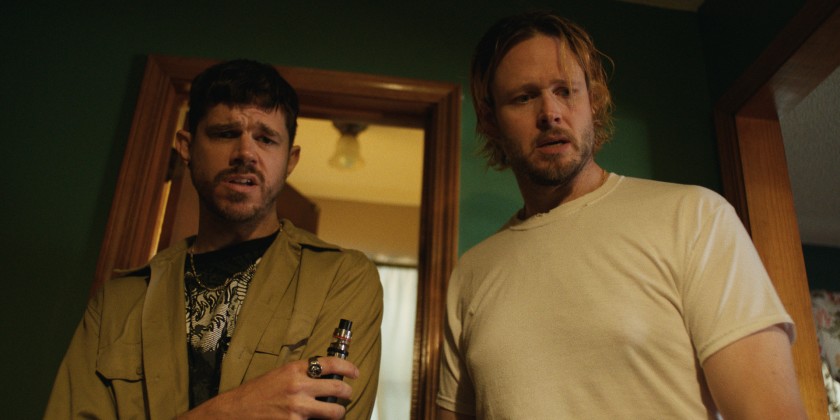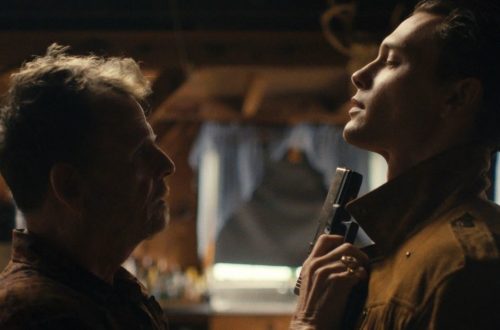 America has long been considered the land of opportunity. If you had a dream, and a desire to make it come true, anything was possible. From 1967 to 1993, Cannon Films produced a distinctive line of low- to medium-budget films. But, while trying to make their versions of polular films they admired (or envied), they wound up releasing films that were spectacularly awful. That just about sums up this history lesson about the long defunct company. But, for a time, and not lacking any ambition, they certainly made a run at rivaling (or outright copying) anything coming out of the major Hollywood studios.
America has long been considered the land of opportunity. If you had a dream, and a desire to make it come true, anything was possible. From 1967 to 1993, Cannon Films produced a distinctive line of low- to medium-budget films. But, while trying to make their versions of polular films they admired (or envied), they wound up releasing films that were spectacularly awful. That just about sums up this history lesson about the long defunct company. But, for a time, and not lacking any ambition, they certainly made a run at rivaling (or outright copying) anything coming out of the major Hollywood studios.
Menahem Golan and Yoram Globus – two strong, passionate and resourceful Israeli filmmakers – set out to make the films they wanted to see. Most times they didn’t even have a script, just an idea Menahem came up with on the spot, and they would literally be shooting the following day. Passion is an essential component in any creative endeavor, but sometimes it pays to think things through before impulsively running off as Golan and Globus did all too often. Sure, some of their films tout big names – Christopher Reeve, Sylvester Stallone, Chuck Norris, Van Damme, even Charles Bronson – but only through the luxury of time can we see how mediocre Over the Top, Death Wish 3, and *shudders* Superman IV really were.
Electric Boogaloo: The Wild, Untold Story of Cannon Films is the latest documentary from the team behind Not Quite Hollywood and Machete Maidens Unleashed! Like those two titles, this doc chronicles Golan and Globus’ fantastic film careers. But Boogaloo is not the story of an underdog, or an also-ran, but a studio who played by their own rules. Looking back however, it’s clear the Cannon chairman and president could probably could have used a few guidelines. Early on, Menahem shares his idea that we as a culture want more life than we are limited to, and that “cinema is the closest we’ll get to the afterlife“. You certainly have to admire their vision but nearly every film they made exists at the intersection of things that should never meet.
The funniest thing is that they knew they were making bad films. But Golan and Globus were always looking at least three projects ahead – get past the first, leverage the next one, and the one after that would be the hit. Their ambition was unparalleled but they continually chased a dream they could never catch. Once in a while they got it right. Or, better, they made something that was not a complete disaster. So, by comparison, anything it looked like an improvement. Little by little, a few of those unlikely hits helped created a bubble and people took note of Cannon. But it was more like watching a train wreck than an appreciation of a studio that found its artistic groove.
The only thing they ever really gained trying to spin straw into gold were more terrible titles to add to their catalog. Of all the outlandish films, and unscrupulous attempts to get them off the ground, there is one line in the doc that brings everything into perspective. “The Cannon way,” in the words of music supervisor Richard Kraft, is that their films always “completely resemble something, minus good taste. And what they didn’t have in taste they made up for in enthusiasm.”
Even as a by-the-numbers doc, this whole film is a fairly entertaining trip down memory lane. If you grew up somehow loving films like American Ninja, or Cyborg, this might be an interesting history lesson. Still, even if the titles are only barely recognizable, it is a fascinating account of two people dared to dream. It’s not that Cannon had a lack of vision, but selling American movies to Americans, over the age of 10, was not their strong suit. Still, you can say one good thing about Cannon – the midnight movies they made are what helped get Fantastic Fest attendees into genre films in the first place. That’s got to count for something.



